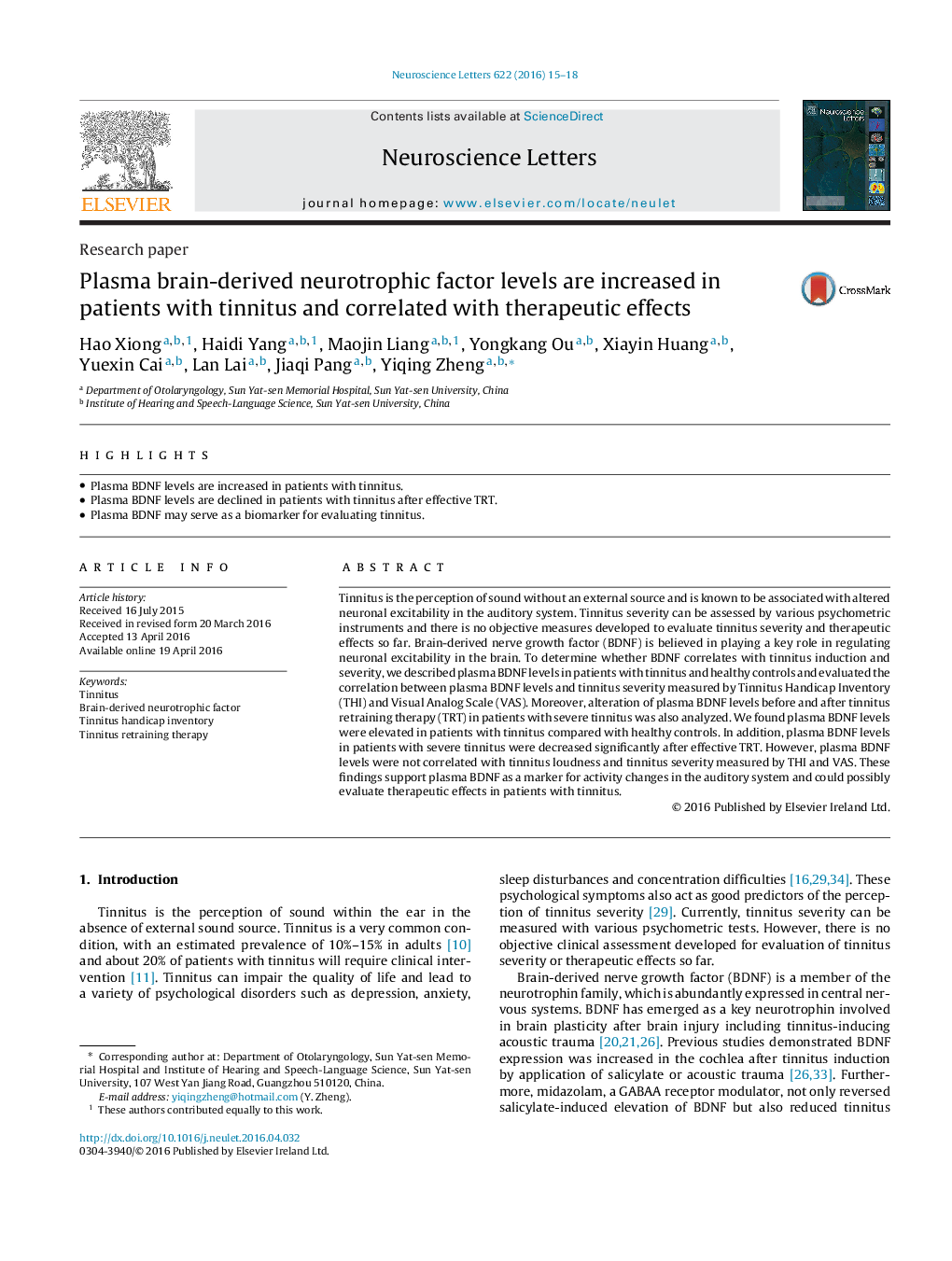| Article ID | Journal | Published Year | Pages | File Type |
|---|---|---|---|---|
| 6279263 | Neuroscience Letters | 2016 | 4 Pages |
Abstract
Tinnitus is the perception of sound without an external source and is known to be associated with altered neuronal excitability in the auditory system. Tinnitus severity can be assessed by various psychometric instruments and there is no objective measures developed to evaluate tinnitus severity and therapeutic effects so far. Brain-derived nerve growth factor (BDNF) is believed in playing a key role in regulating neuronal excitability in the brain. To determine whether BDNF correlates with tinnitus induction and severity, we described plasma BDNF levels in patients with tinnitus and healthy controls and evaluated the correlation between plasma BDNF levels and tinnitus severity measured by Tinnitus Handicap Inventory (THI) and Visual Analog Scale (VAS). Moreover, alteration of plasma BDNF levels before and after tinnitus retraining therapy (TRT) in patients with severe tinnitus was also analyzed. We found plasma BDNF levels were elevated in patients with tinnitus compared with healthy controls. In addition, plasma BDNF levels in patients with severe tinnitus were decreased significantly after effective TRT. However, plasma BDNF levels were not correlated with tinnitus loudness and tinnitus severity measured by THI and VAS. These findings support plasma BDNF as a marker for activity changes in the auditory system and could possibly evaluate therapeutic effects in patients with tinnitus.
Keywords
Related Topics
Life Sciences
Neuroscience
Neuroscience (General)
Authors
Hao Xiong, Haidi Yang, Maojin Liang, Yongkang Ou, Xiayin Huang, Yuexin Cai, Lan Lai, Jiaqi Pang, Yiqing Zheng,
